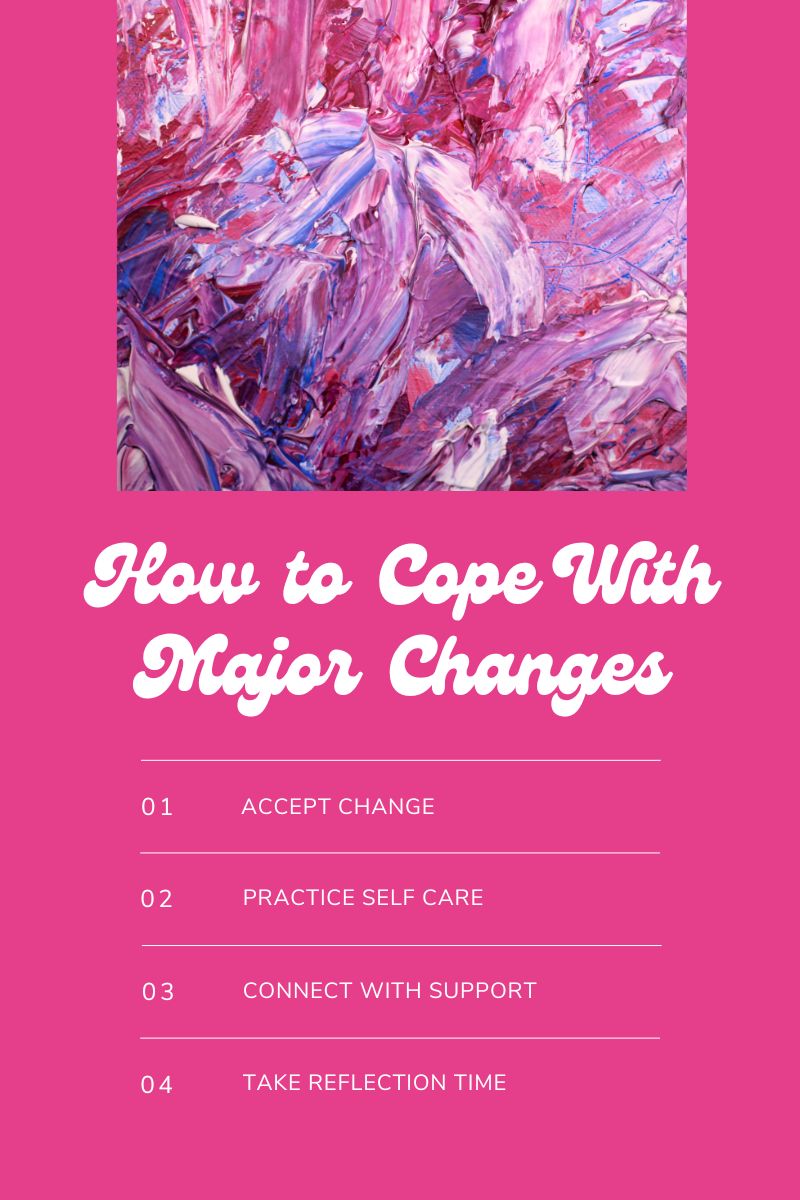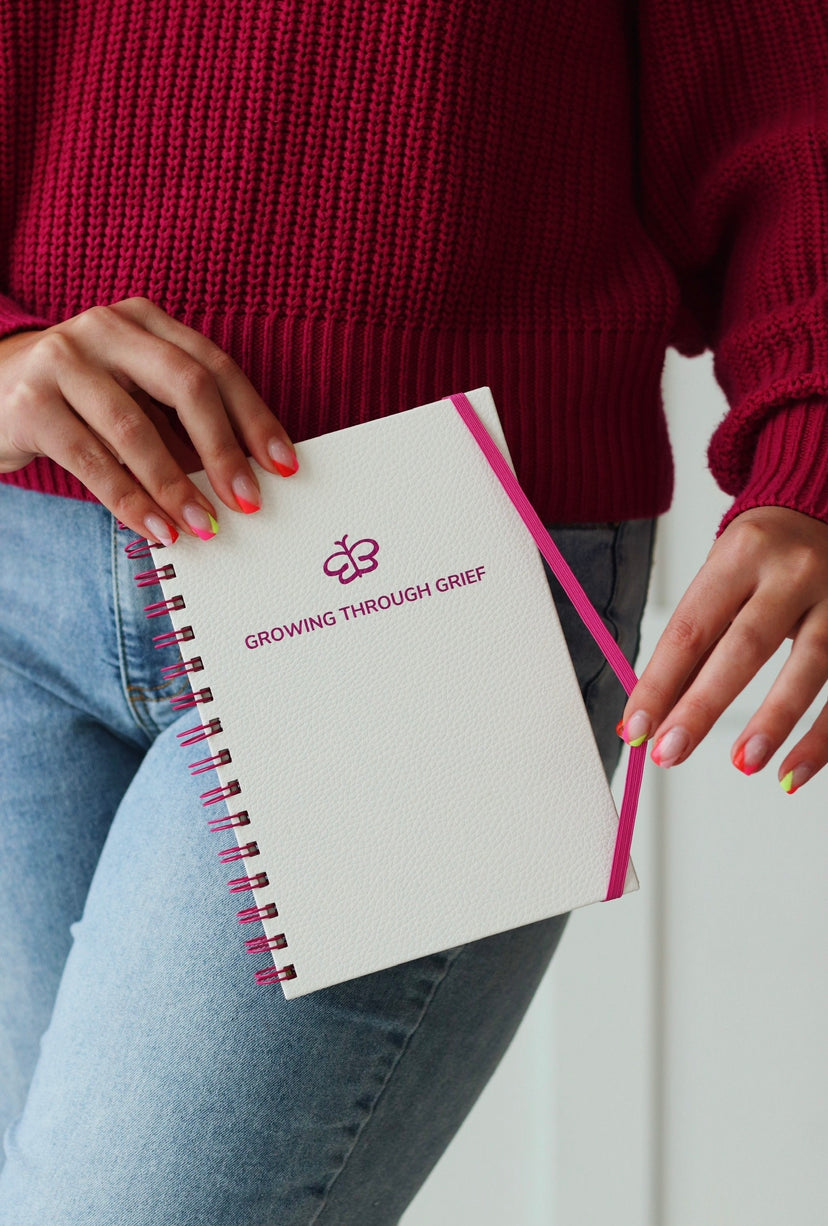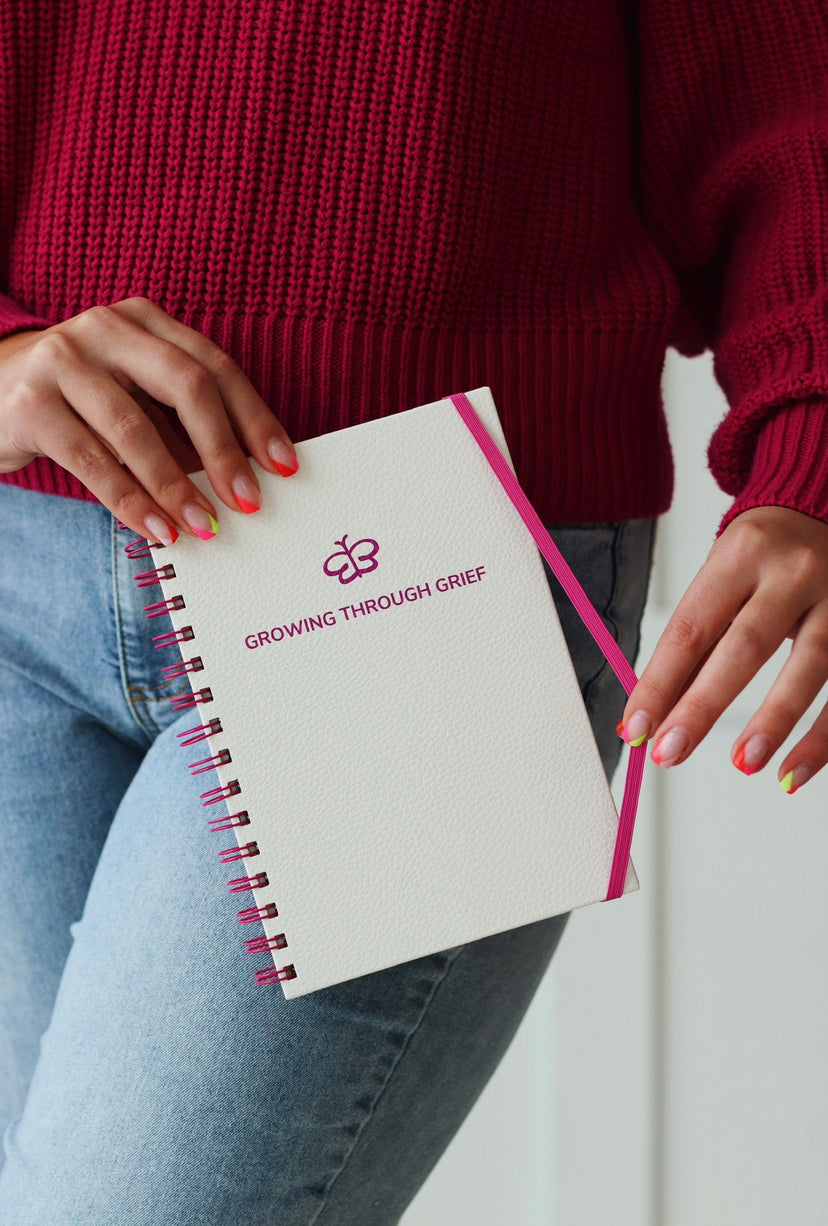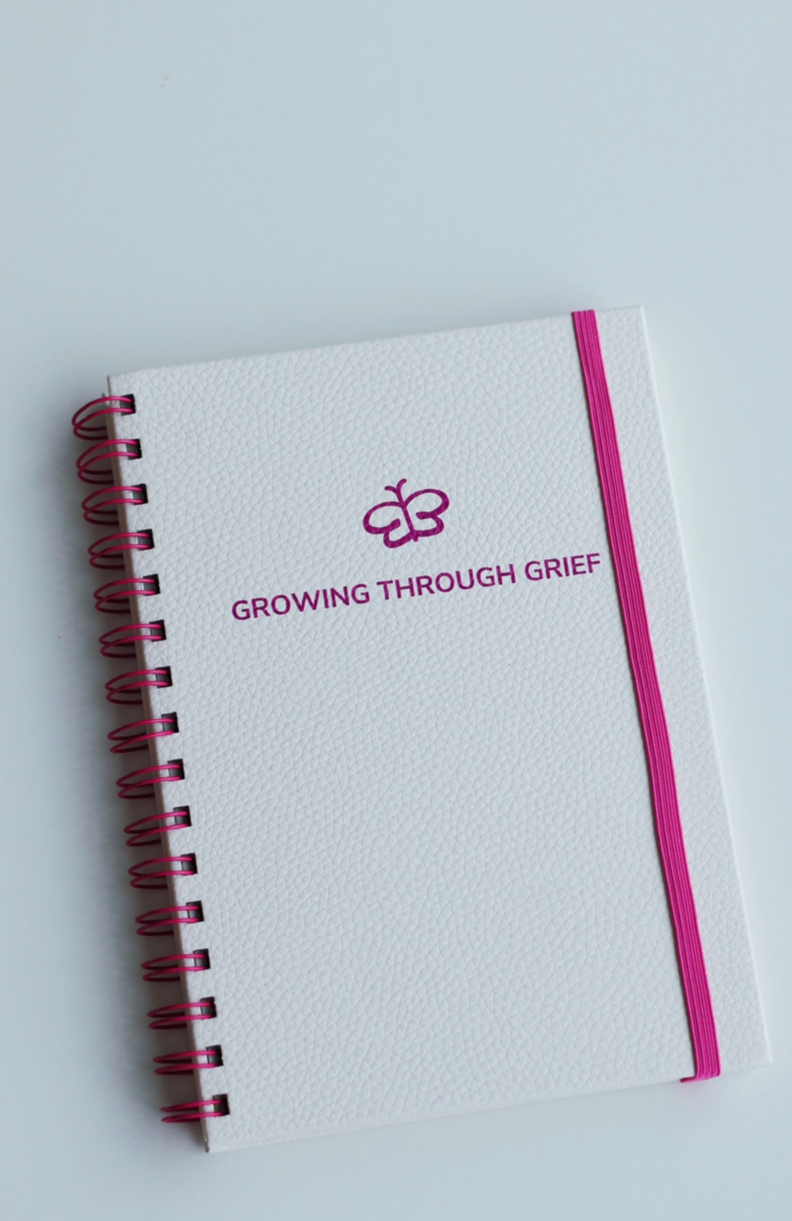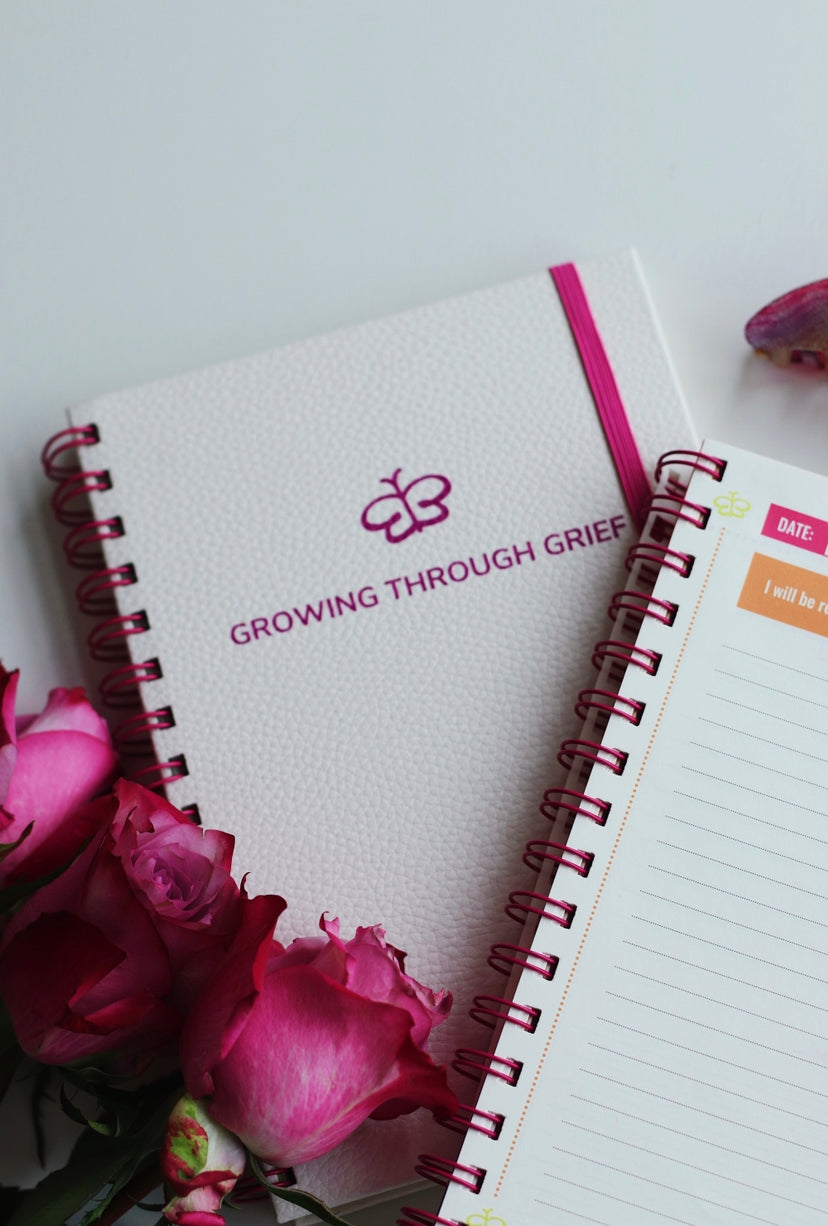Big changes can make life feel very stressful and overwhelming, but emotion-focused coping strategies can help you manage transitions and emerge with a more positive outlook and more resilience. By taking purposeful time for yourself and tackling tasks one at a time, I hope these 4 tips will help you navigate what ever big life change you are facing right now.
1. Accept That Change is a Part of Life
Easier said than done, but one of the first steps in coping with major changes is accepting that they are inevitable. A big part of grief is mourning the past and wishing things had stayed the same. Give yourself the grace to process these feelings. When you’re ready, try to shift your perspective and look for positives in your new situation. Emotion-focused coping often involves reframing your mindset—seeing new opportunities can help you use this transition to create a more fulfilling life.
2. Practice Self-Care and Prioritize Your Well-Being
During significant life transitions, taking care of yourself is crucial. Make time for activities or hobbies you enjoy, maintain healthy habits like journaling, exercise, and good nutrition, and prioritize relaxation. Activities like yoga or meditation to help manage stress. Taking care of your mind, body and soul will make it easier to cope with the emotional toll that often comes with big changes.
3. Stay Connected with Your Support System
Rely on your support system during times of transition. Reaching out to friends, family, or even support groups can provide the emotional comfort you need. Carve out time for dinner dates, virtual video chats, or simple phone calls. Strengthening connections with others can boost your emotional resilience and offer comfort during uncertain times.
4. Take Time to Reflect Before Making Decisions
Major life changes can feel overwhelming, but it’s important to pause and reflect before rushing into decisions. One helpful way to process your emotions is through journaling. Using grief journal prompts can guide your reflection and help you explore feelings of loss, confusion, or uncertainty. Ask yourself questions like, “What is the best course of action?”, “What happens if I wait?”, or “What do I truly want from this change?” By journaling and answering these questions, you can gain clarity and approach the transition with more emotional balance.
Incorporating these emotion-focused coping strategies, including using grief journal prompts, can equip you to manage the stress of life’s big changes. Prioritize self-care, maintain strong connections, and take time for thoughtful reflection to navigate transitions with resilience and insight.
Reflection is so important but it can be hard to remember all these tips in the heat of emotional moments. That’s why we created our Grief Journal—to take the guesswork out of healing. This all-in-one tool is designed to guide you through your grief with ease, offering grief journal prompts and simple practices that help you process emotions and find peace. Whether you’re feeling lost or stressed, our journal provides a comforting structure to help you feel better.
Elevate your healing journey today and evolve with the Growing Through Grief Journal.

